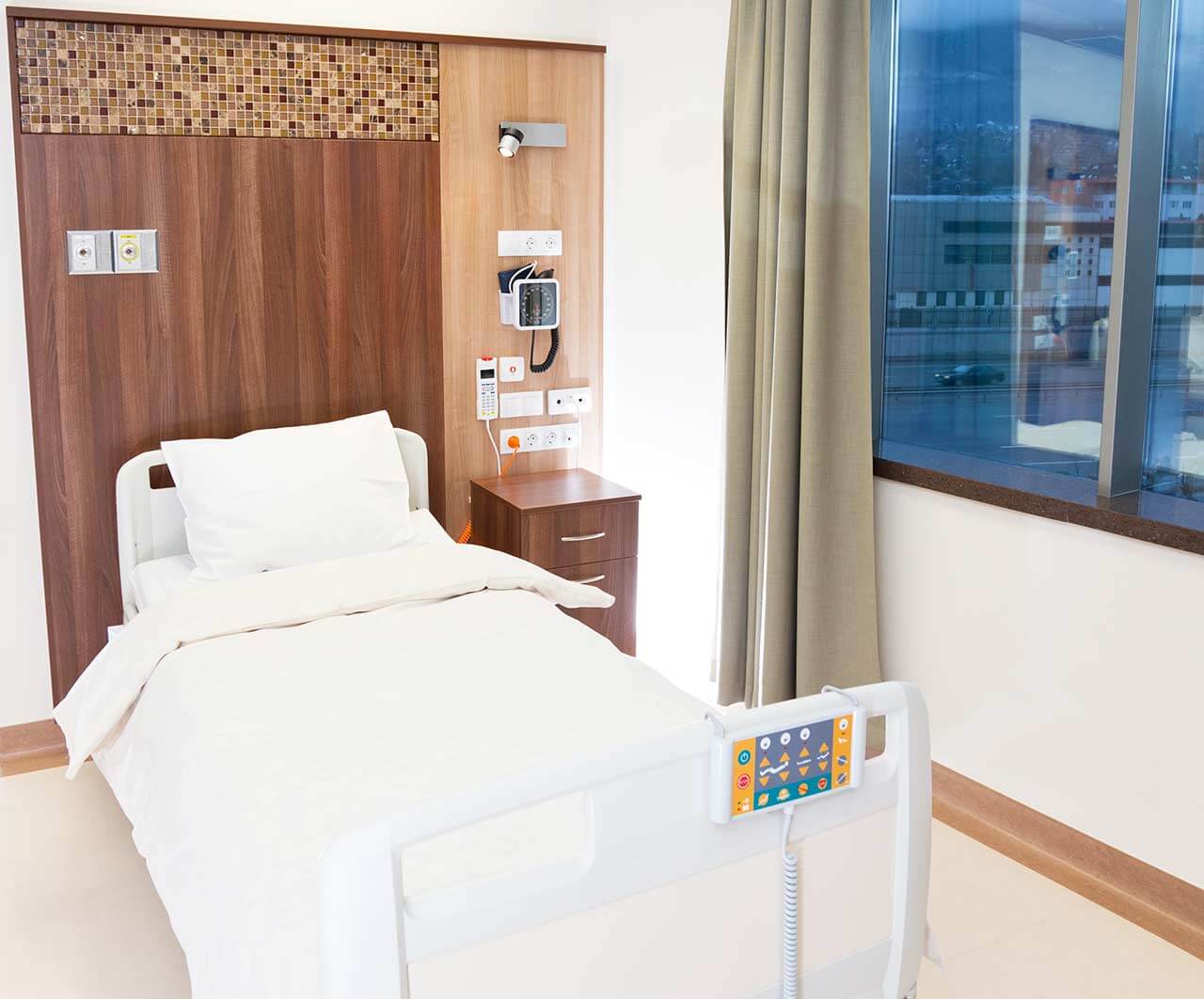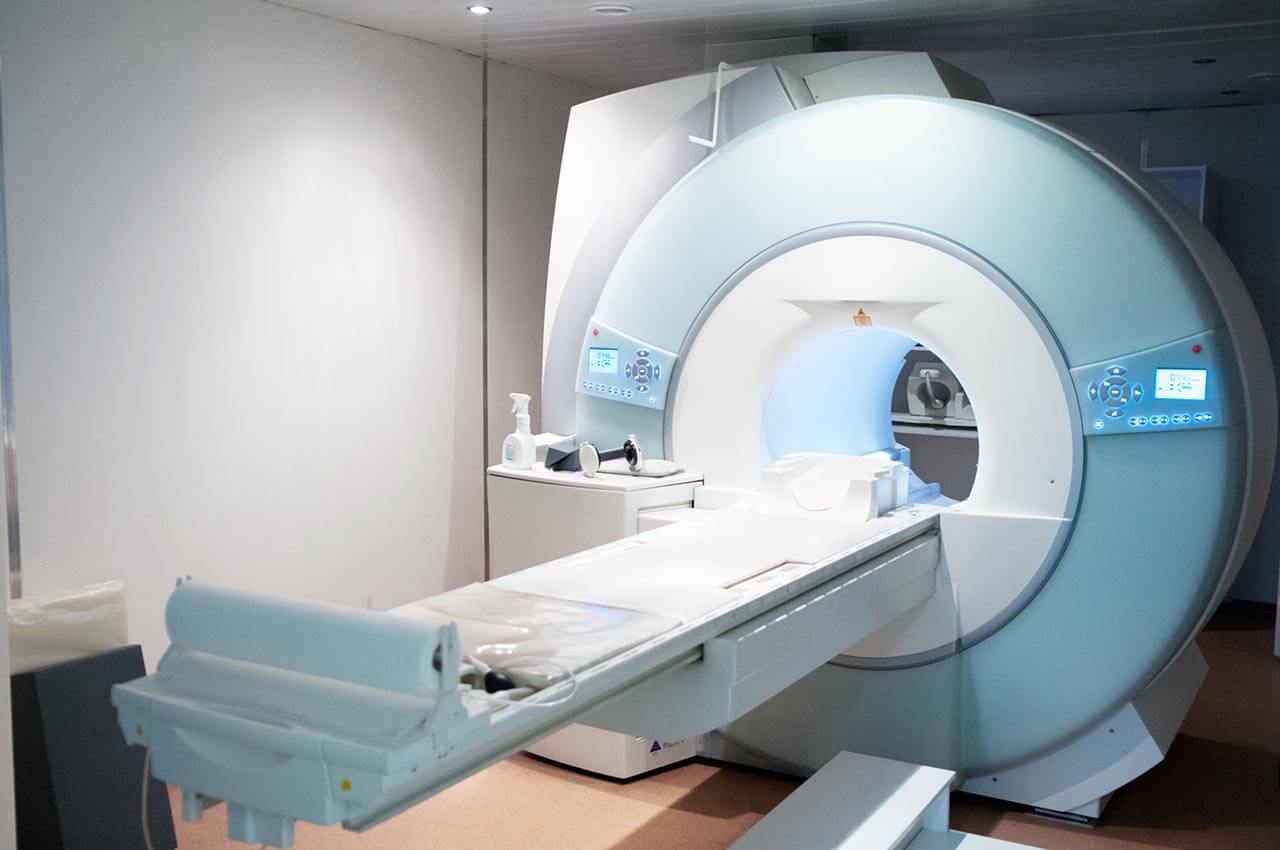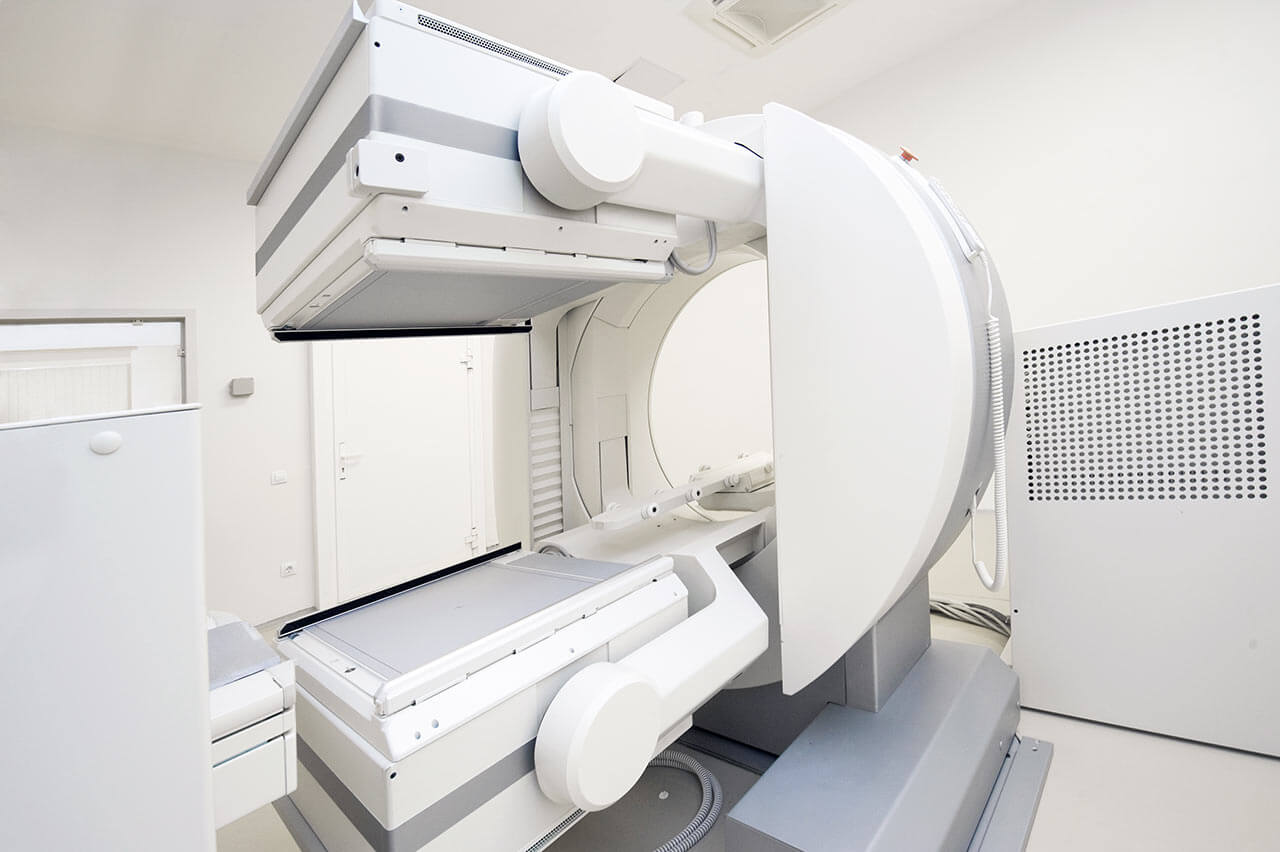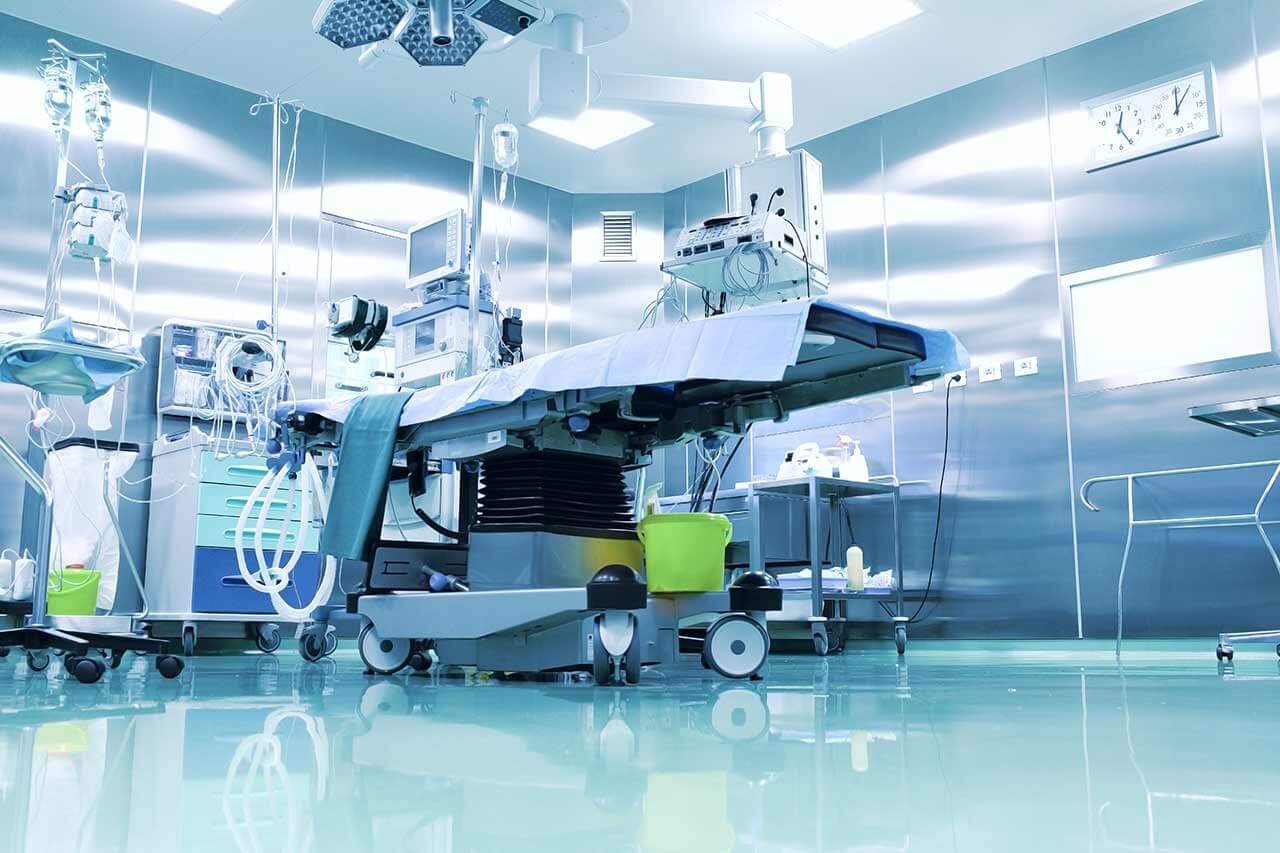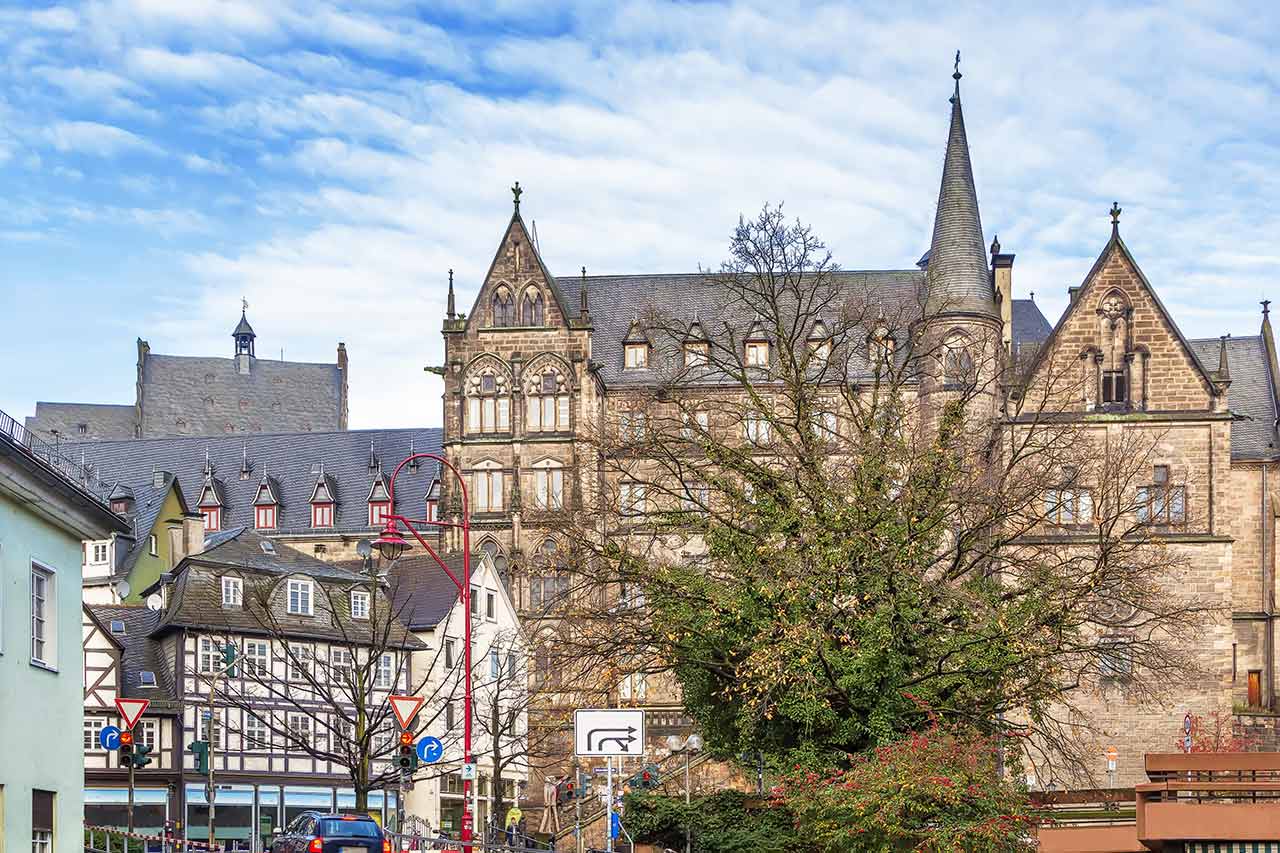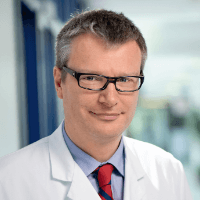
The program includes:
- Initial presentation in the clinic
- clinical history taking
- review of medical records
- physical examination
- laboratory tests:
- complete blood count
- biochemical analysis of blood
- inflammation indicators (CRP, ESR)
- indicators blood coagulation
- neurological examination
- CT/MRI scan
- neuropsychological tests (on indications):
- ENMG (electroneuromyography)
- EEG (electroencephalography)
- SEPs (somatosensory evoked potentials)
- VEPs (visually evoked potentials)
- BAEP tests (brainstem auditory evoked potential)
- preoperative care
- interpositional nervi graft
- symptomatic treatment
- control examinations
- the cost of essential medicines and materials
- nursing services
- full hospital accommodation
- developing of further guidance by specialists
in oncology and radiotherapy
Required documents
- Medical records
- MRI/CT scan (if available)
Service
You may also book:
 BookingHealth Price from:
BookingHealth Price from:
About the department
The Department of Adult and Pediatric Neurosurgery at the University Hospital Marburg UKGM offers all modern surgical interventions for the treatment of pathologies of the nervous system. The clinical focuses include the treatment of oncological diseases of the nervous system (neuro-oncology), skull base surgery, vascular neurosurgery, spinal surgery and functional neurosurgery, including the surgical treatment of epilepsy. The Chief Physician of the department is Prof. Dr. med. Christopher Nimsky.
As a state-of-the-art medical facility, the department has the advanced systems for deep brain stimulation, multimodal neuronavigation devices, intraoperative neuronavigation using CT, ultrasound systems, fluorescence imaging devices and endoscopy equipment. Thus, the department has all the possibilities to ensure effective treatment according to the international standards.
Since the key to successful therapy is the accurate diagnostics, the department also offers advanced diagnostic tests, such as CT, MRI, angiography, myelography, ultrasound, electrophysiological studies, etc.
One of the department’s key focuses is the surgical treatment of oncological diseases of the nervous system, in particular, brain tumors and metastases (Neuro-Oncology Center certified by the German Cancer Society). The first stage is the comprehensive diagnostics, after which there is developed a treatment regimen at a weekly tumor board with the participation of radiation therapists, oncologists, neurologists, neuroradiologists, neuropathologists, etc. The department’s neurosurgeons have unique experience in the treatment of gliomas located near the eloquent regions of the brain. In the course of such operations, the surgeons widely use multimodal navigation and intraoperative imaging methods, which allow to perform resection as complete as possible with a low risk of developing postoperative neurological deficit.
Particular attention is paid to the treatment of young patients. Children are treated in close collaboration with experts from the related fields, such as neuropediatricians, pediatric oncologists, pediatric surgeons, neonatologists. The department’s neurosurgeons mostly perform operations in children to treat hydrocephalus, spina bifida, brain and spinal cord tumors, brachial plexus paralysis, pathology of the skull base. Whenever possible, minimally invasive and endoscopic techniques are used. Neurosurgical interventions in children are also performed using neuronavigation, intraoperative ultrasound, fluorescence and advanced neuromonitoring.
The department’s spectrum of medical services includes:
- Surgical treatment of cancers of the nervous system (neuro-oncology)
- Skull base surgery
- Vascular neurosurgery (focus on the treatment of intracranial and spinal vascular malformations)
- Functional neurosurgery
- Surgical treatment of epilepsy
- Deep brain stimulation (for example, in patients with Parkinson's disease, dystonia, tremor)
- Surgical treatment of trigeminal neuralgia
- Thermocoagulation
- Neurovascular decompression
- Pain therapy using implantation of special pumps with drugs or stimulation probes (for chronic pain syndromes in patients with cancer, chronic degenerative spinal diseases, angina pectoris)
- Pediatric neurosurgery
- Surgical treatment of hydrocephalus
- Surgical treatment of spina bifida
- Surgical treatment of tumors of the nervous system
- Surgical treatment of brachial plexus paralysis
- Minimally invasive skull base surgery
- Neurosurgical intensive care
- General intensive care (replacement therapy for respiratory and renal failure)
- Complete neuromonitoring with invasive measurement of intracranial pressure, microdialysis to assess brain metabolism, long-term EEG and nerve conduction velocity measurement to assess damage to nerve endings
- Spinal surgery
- Microsurgical treatment of herniated discs and degenerative spinal stenosis
- Treatment of complex spinal diseases
- Minimally invasive treatment of intraspinal tumors, vascular malformations
- Various ablative and stimulatory treatments for chronic spinal pain
- Other surgical options
Photo of the doctor: (c) UKGM - Universitätsklinikum Gießen und Marburg GmbH
About hospital
The University Hospital Marburg UKGM offers patients modern diagnostics and comprehensive therapy at the international level. As a maximum care hospital, the medical facility specializes in all fields of modern medicine ranging from ophthalmology to traumatology and dentistry. The main areas of specialization of the hospital are surgery, neurosurgery, oncology, nephrology with kidney transplantation and children's medicine.
The hospital is the third largest in Germany. Every year, more than 436,000 patients are treated in two locations of the hospital (Giessen and Marburg): 342,000 in outpatient and 94,000 inpatient settings. The medical facility is the first privatized university hospital in the country.
The hospital staff makes a significant contribution to the development of research activities at the Faculty of Medicine of the Justus Liebig University Giessen and the Philipps University of Marburg. To develop new diagnostic and therapeutic methods, as well as to implement them into clinical practice, the specialists maintain active cooperation in a large number of areas.
The widest range of diagnostic and therapeutic services, the advanced infrastructure and technical base, high quality of treatment and professionalism of health workers contribute to the fact that the medical facility has an excellent reputation not only in Germany, but also far beyond its borders.
Photo: (c) depositphotos
Accommodation in hospital
Patients rooms
The patients of the University Hospital Marburg UKGM live in comfortable single and double rooms made in a modern design and light colors. Each room has an ensuite bathroom with shower and toilet. The pediatric departments provide patient rooms for the joint accommodation of mother and child. The standard room furnishing includes an automatically adjustable bed, bedside table, wardrobe, TV, telephone.
Meals and Menus
The patients of the hospital are offered balanced, healthy three meals a day: buffet breakfast, lunch and dinner. The private kitchen, certified according to DIN EN ISO 9001: 2000, is responsible for providing patients with food and drinks.
If for some reason you do not eat all foods, you will be offered an individual menu. The hospital also has a cafeteria with a large assortment of hot and cold drinks, snacks and desserts.
Further details
Standard rooms include:
Television
All patient rooms are equipped with TV sets. If you have some questions about TV use, please contact medical personnel.
Religion
Religious services can be provided upon request.
Accompanying person
During an inpatient program, an accompanying person can stay with you in a patient room or in a hotel of your choice.
Hotel
During the outpatient program, you can stay at the hotel of your choice. Our managers will help you choose the most suitable option.
